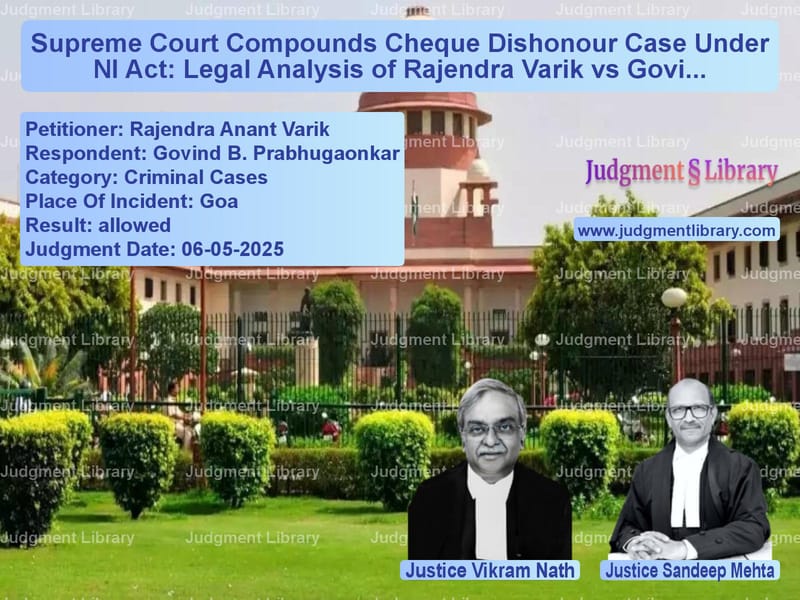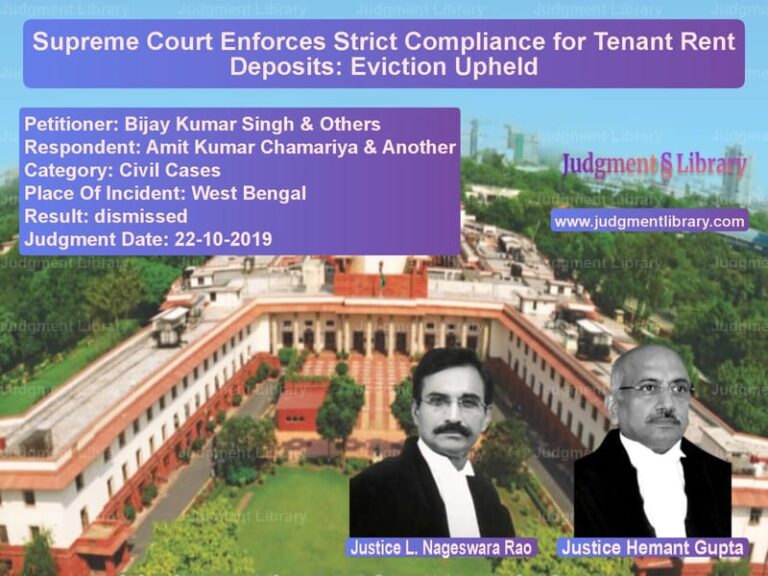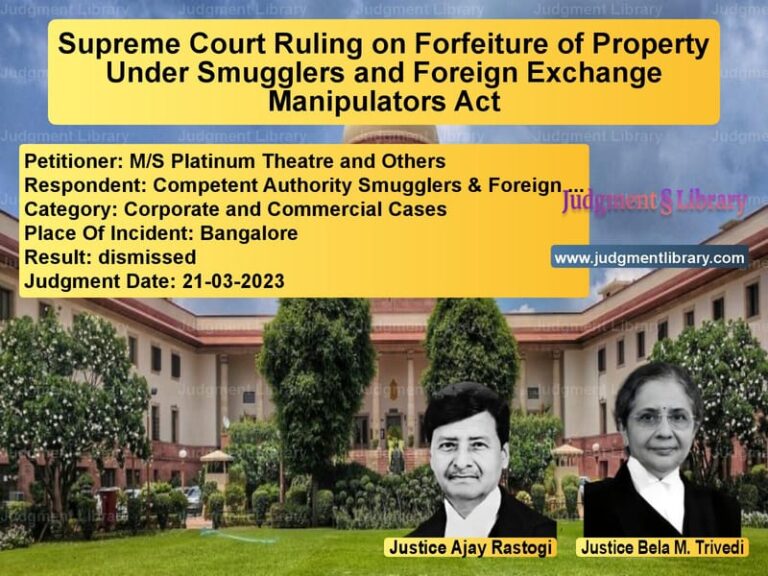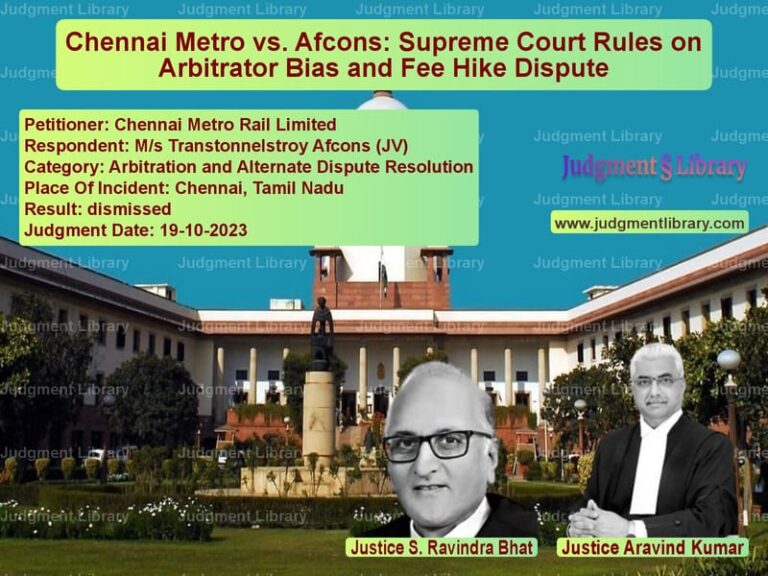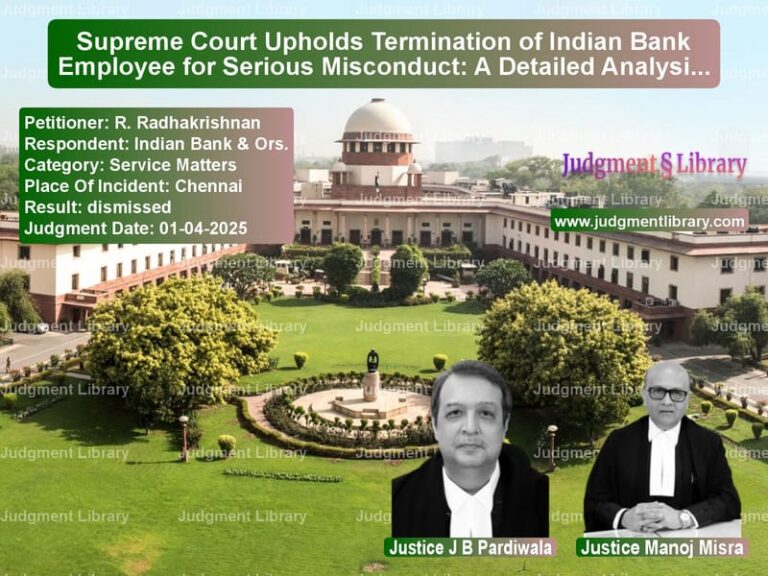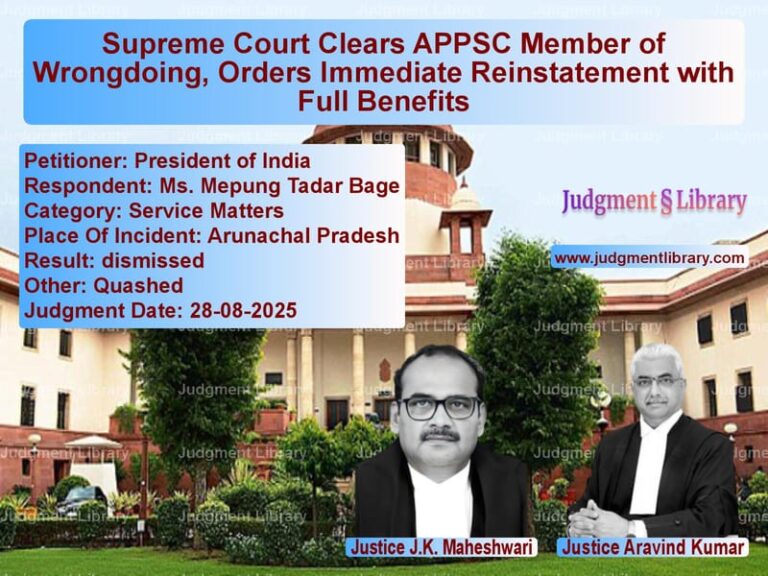Supreme Court Compounds Cheque Dishonour Case Under NI Act: Legal Analysis of Rajendra Varik vs Govind Prabhugaonkar
The Indian judicial system witnessed another significant ruling on cheque dishonour cases when the Supreme Court delivered its judgment in the case of Rajendra Anant Varik versus Govind B. Prabhugaonkar on May 6, 2025. This case, which traveled through multiple judicial forums, highlights the complexities of financial disputes and the importance of procedural compliance in money lending activities.
The legal journey began when Govind B. Prabhugaonkar filed a complaint under Section 138 of the Negotiable Instruments Act, 1882, alleging that a cheque issued by Rajendra Anant Varik for Rs. 2,00,000 had been dishonoured by the bank. The trial court, presided by the Judicial Magistrate First Class in Canacona, delivered its verdict on August 5, 2016, convicting the accused and directing him to pay compensation of Rs. 2,00,000 to the complainant along with an additional Rs. 30,000 as costs. The court further stipulated that in default of payment, the accused would undergo simple imprisonment for three months, in addition to undergoing sentence till the rising of the court.
The case took an interesting turn when the accused appealed to the First Appellate Court, the Court of Sessions Judge, South Goa at Margao. This court, in its judgment dated February 6, 2017, took a completely different view of the matter. The appellate court allowed the criminal appeal filed by the accused-appellant and acquitted him of all charges. The court based its decision on a crucial finding that the complainant-respondent was engaged in money lending activities without obtaining the necessary license under the Goa Money-Lenders Act, 2001. The court held that this violation of state law prevented the complainant from prosecuting the accused under the Negotiable Instruments Act.
The complainant, dissatisfied with this outcome, approached the High Court of Judicature at Bombay at Goa. The High Court, in its judgment dated January 7, 2023, set aside the acquittal order and restored the conviction recorded by the trial court. The High Court’s decision meant that the accused was once again held guilty under Section 138 of the NI Act and was required to pay the compensation amount as originally directed by the trial court.
The accused-appellant then approached the Supreme Court through a special leave petition, challenging the High Court’s judgment. The appellant’s counsel presented several arguments before the apex court. He contended that the entire loan amount had been repaid to the complainant between January 2012 and July 2013. More significantly, he argued that since the accused-appellant had returned the cheque amount along with applicable interest, he was entitled to acquittal through compounding of the offence.
The Supreme Court, comprising Justices Vikram Nath and Sandeep Mehta, carefully examined the entire case record and the arguments presented. The court made several crucial observations about the High Court’s judgment. In their analysis, the judges noted: “the High Court, while reversing the acquittal of the accused-appellant, as recorded by the First Appellate Court, did not advert to the important issue regarding applicability of the Goa Act which provided a valid defense available to the accused-appellant. Thus, apparently, the judgment rendered by the High Court does not stand to scrutiny.”
This observation highlighted a fundamental flaw in the High Court’s approach – it had failed to consider the significant legal defence available to the accused under the Goa Money-Lenders Act. The Supreme Court recognized that the First Appellate Court had correctly identified this crucial aspect of the case, which the High Court had overlooked in its reversal of the acquittal.
The Supreme Court also took cognizance of the fact that the accused-appellant had already paid the entire financial penalty imposed by the trial court. The cheque amount of Rs. 2,00,000 and the compensation of Rs. 30,000 had been deposited by the appellant. This factual position played a significant role in the court’s final decision.
In exercising its extraordinary powers under Article 142 of the Constitution of India, the Supreme Court stated: “we hereby, exercise our powers under Article 142 of the Constitution of India, to compound the offence and acquit the accused-appellant of the accusation under Section 138 of the NI Act subject to the condition that the entire amount of Rs.2,30,000/- deposited by the accused-appellant shall be paid to the complainant-respondent, if the same has not been paid till date.”
The court’s decision to compound the offence and acquit the accused-appellant represents a pragmatic approach to dispute resolution. It acknowledges that while technical violations may have occurred, the substantial justice required that the matter be put to rest, especially since the financial compensation had already been paid.
This judgment serves as an important precedent for several reasons. First, it reinforces the principle that courts must consider all valid legal defences available to an accused, including those arising from procedural violations by the complainant. Second, it demonstrates the Supreme Court’s willingness to use its constitutional powers under Article 142 to ensure complete justice is done in cases where technical legal points might otherwise prolong litigation unnecessarily.
The case also highlights the importance of compliance with state-specific regulations like the Goa Money-Lenders Act. Financial transactions, even when they involve instruments like cheques which are governed by central legislation, must adhere to all applicable laws, including state-level regulations governing money lending activities.
For the general public, this judgment serves as a reminder that legal disputes involving financial transactions can be complex and may involve multiple layers of regulation. It emphasizes the importance of maintaining proper documentation and ensuring compliance with all relevant laws when engaging in financial activities.
The Supreme Court’s decision brings finality to a long-standing legal dispute that had seen multiple reversals at different judicial levels. By compounding the offence and acquitting the accused, while ensuring that the financial compensation reaches the rightful recipient, the court has balanced the interests of all parties involved and provided a just conclusion to the matter.
Petitioner Name: Rajendra Anant Varik.Respondent Name: Govind B. Prabhugaonkar.Judgment By: Justice Vikram Nath, Justice Sandeep Mehta.Place Of Incident: Goa.Judgment Date: 06-05-2025.Result: allowed.
Don’t miss out on the full details! Download the complete judgment in PDF format below and gain valuable insights instantly!
Download Judgment: rajendra-anant-varik-vs-govind-b.-prabhugaon-supreme-court-of-india-judgment-dated-06-05-2025.pdf
Directly Download Judgment: Directly download this Judgment
See all petitions in Cheque Dishonour Cases
See all petitions in Fraud and Forgery
See all petitions in Debt Recovery
See all petitions in Contract Disputes
See all petitions in Judgment by Vikram Nath
See all petitions in Judgment by Sandeep Mehta
See all petitions in allowed
See all petitions in supreme court of India judgments May 2025
See all petitions in 2025 judgments
See all posts in Criminal Cases Category
See all allowed petitions in Criminal Cases Category
See all Dismissed petitions in Criminal Cases Category
See all partially allowed petitions in Criminal Cases Category

